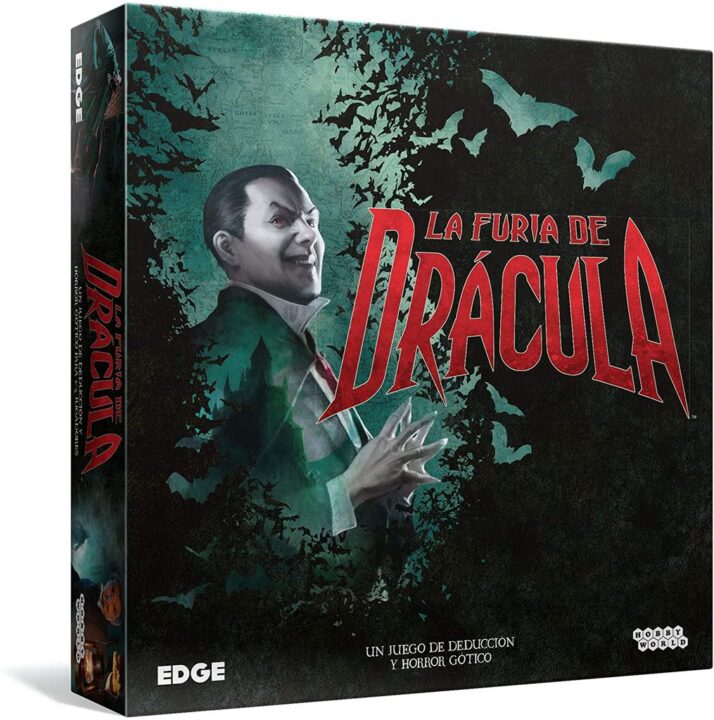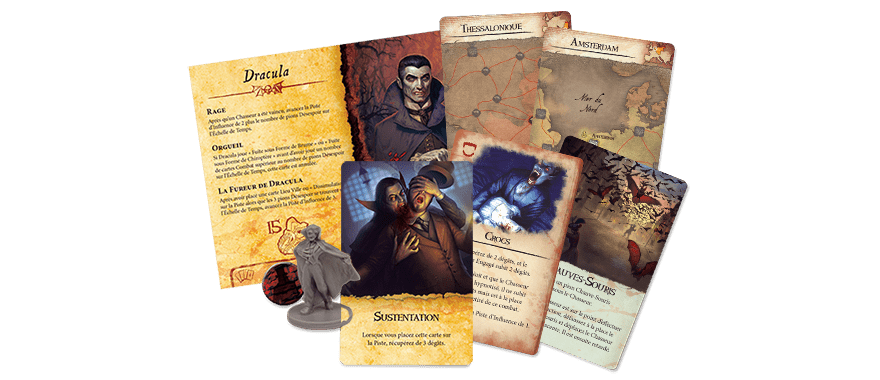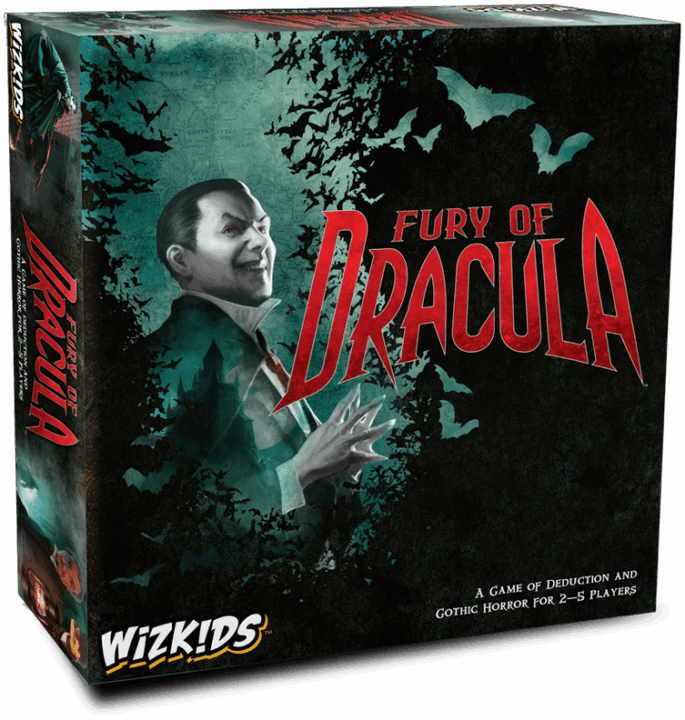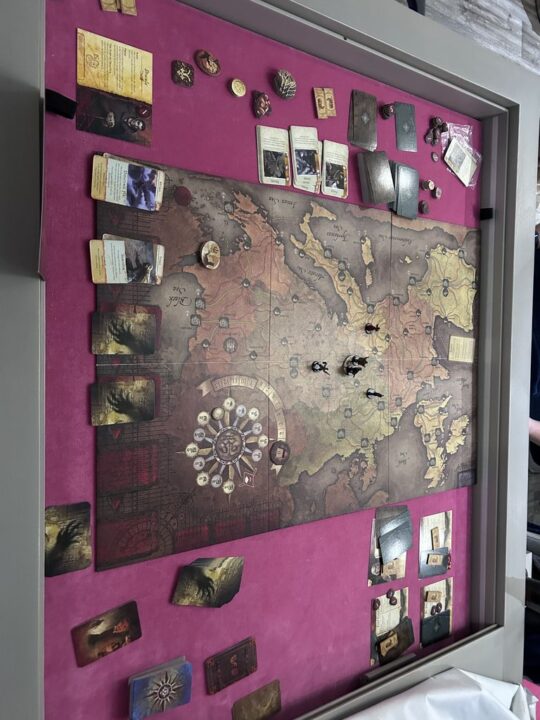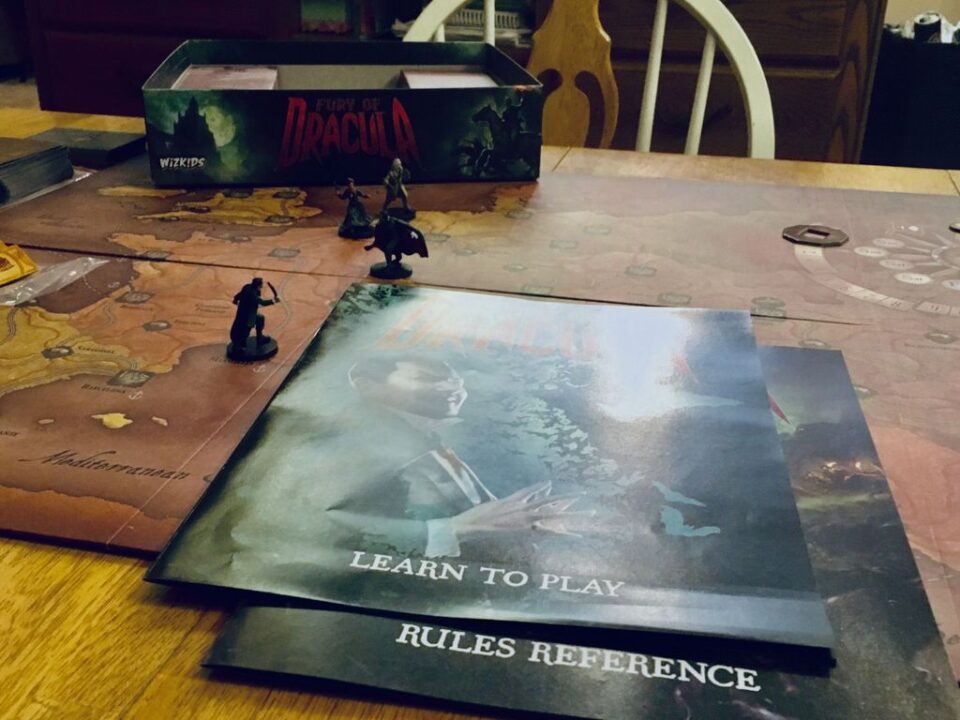If you’ve ever wanted to chase your friend around Europe while shouting, “I know you’re a vampire, Steve!”, then buckle up—this review is for you. I’ve played Dracula more times than I’ve lost my socks at game night, and I’ve got stories, scars, and a few bite marks to prove it. In this review, I’ll drag Dracula into the daylight and show you if this classic is worth adding to your collection or if it should stay locked in its coffin. I’ll cover the gothic theme, the drama at the table, and, of course, whether luck ruins the night like garlic bread at a vampire dinner. Ready? Let’s get spooky.
How It Plays
Setting up
First, pick one player to be Dracula. The rest are brave hunters. Set out the board, hand out character cards, and give Dracula his hidden movement map. Place all the tokens and pieces where the rules say—hopefully someone remembers where Transylvania is!
Gameplay
Dracula skulks around Europe in secret, leaving clues and maybe the odd vampire. The hunters chatter, argue, and try to work together to track him down. Everyone takes turns—Dracula moves in secret, the hunters move openly, gather gear, and try to sniff out his trail. If a hunter finds Dracula, a dramatic fight can break out. It’s like Scooby Doo—with more garlic.
Winning the game
Dracula wins if he manages to survive several days and spread enough terror. If the hunters stake him (not literally, but you know what I mean), they win. So it’s stealth and trickery versus pure teamwork and a bit of luck. Let the hunt begin!
Want to know more? Read our extensive strategy guide for Dracula.
Themes, Fangs, and Chills: Setting the Stage in Dracula
I’m a sucker for atmosphere in board games (pun entirely intended). When my friends and I sat down to play Dracula, I swear every shadow in the room got a little darker. Right from the box art, you know you’re in for a gothic treat. Dracula comes oozing with theme—dark forests, creepy castles, and fog so thick you can almost smell it. I would have lit a candle for ambiance, but I didn’t trust Steve not to knock it over.
The game doesn’t just slap a spooky label and call it a night. Cards are stained with fake blood (okay, red ink, but still), and every little piece drips with Victorian dread. One of my pals insisted on talking in a bad Transylvanian accent all night, and honestly, it fit. I felt like Van Helsing on the hunt, suspicious of my own friends, and I’m pretty sure the dog started howling when Dracula’s true form was revealed.
You don’t just play Dracula; you live it. There’s tension at the table, especially when night falls and players whisper, worried who will get bitten next. Even the event cards have creepy story snippets that bring the world to life. Whether you’re staking a friend or running for dear life, you’re never just moving pieces. You’re living a campy horror story, and I love it for that.
But beware! Next, we’ll sink our teeth into Game mechanics and balance—where the real horror (and maybe some unbalanced surprises) lurk in the darkness…

Game Mechanics and Balance in Dracula
Alright, let’s sink our teeth into the nuts and bolts of Dracula—the game, not the guy who bites necks. This isn’t your grandma’s roll-and-move game. You’ve got hidden movement, deduction, and classic cat-and-mouse fun. In fact, in one of our games, Lucy spent three turns thinking she was chasing Dracula… only to be following another hunter. That’s the kind of twisty fun you get in this game.
Dracula himself gets a bunch of clever tricks. He leaves traps, vanishes in the night, and generally makes life tough for the hunters. It’s satisfying (sometimes a bit too much) to see your friends panic when they realize you’ve doubled back across Europe. But here’s the catch: if you’re the vampire, you need a solid plan, or you’ll be cornered faster than a garlic-lover at a blood bank. Hunters, meanwhile, need to work together or they’ll be sitting ducks.
To be honest, sometimes the Dracula player feels a tad overpowered at the start, darting around while the hunters argue about train tickets. But once the hunters team up and share clues, the balance shifts quick. Still, there were games where luck reared its ugly head—a single dice roll could mean life or death in a fight. That’s never my favorite mechanic. Give me skill any day! Overall, Dracula manages a pretty fair balance if everyone knows what they’re doing, but random chance can tip things now and then, which bugs me just a little.
Next, I’ll talk about player interaction and roles—so sharpen your wooden stakes and prepare for some drama!
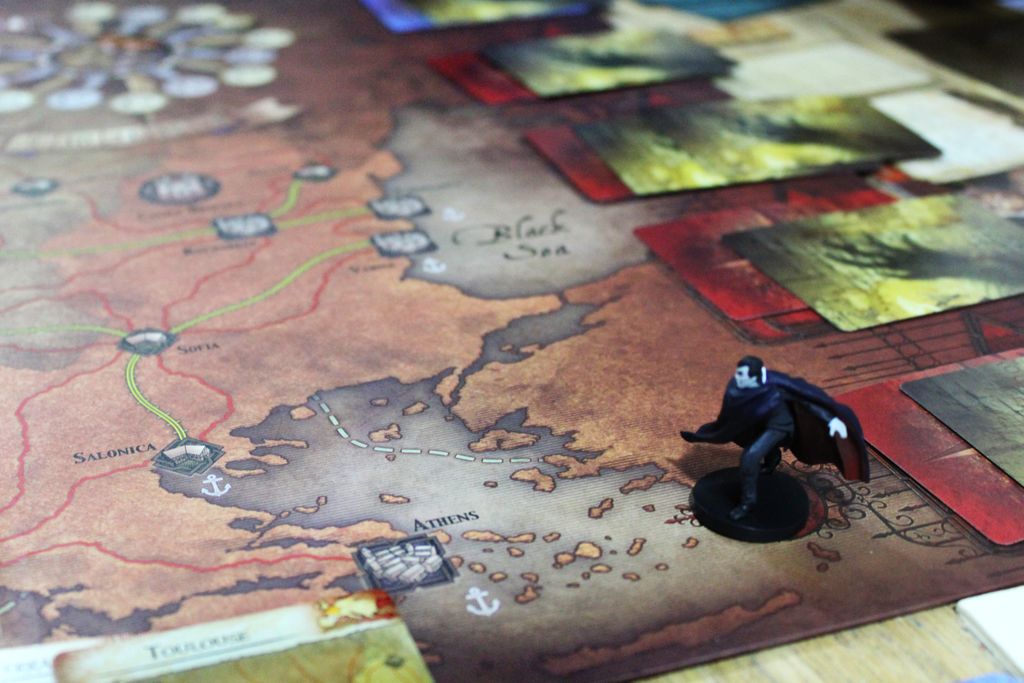
How Players Clash and Cooperate in Dracula
Let me tell you about the table tension in Dracula. This is not a “sit quietly and push cubes” kind of night. Oh no, you’re going to glare, accuse, and maybe even start speaking in a weird Transylvanian accent. The game splits players into two mighty forces: one becomes the infamous Dracula, and the rest (up to four) act as the brave vampire hunters. The hunters must cooperate closely—they share tips, plan moves, and sometimes make fun of my last disastrous guess (thanks, Mark). Meanwhile, Dracula skulks around Europe, laughing quietly about how he’s fooled us yet again.
The best bit? Each side feels totally different to play. As Dracula, you’re a sneaky mastermind, leaving behind clues, fake-outs, and the occasional evil laugh. Your job is to avoid, delay, and occasionally throw a bat at Van Helsing. If you get cornered, you might feel the sweat rolling down your cape—but outwitting your friends is glorious. As a hunter, you must discuss, debate, and sometimes watch your plan fall apart because your mate went rogue (looking at you, Sarah). There’s always pressure to be smart, but you rely on teamwork—no lone wolves allowed. Well, unless you’re Mina Harker, who always gets lost. Sorry, Mina.
The player roles are actually well balanced—no one feels useless. Dracula has freedom to move, and the hunters can think together. But I’ll be honest, when a hunter plays solo or forgets to share info, it can get rocky. Communication is the silver bullet here. If you love dramatic showdowns and bluffing your buddies, this game hits the spot.
Next, I’ll take a bite out of how many times you’ll want to play again—and how long each hunt really lasts. Don’t pack away your garlic yet!
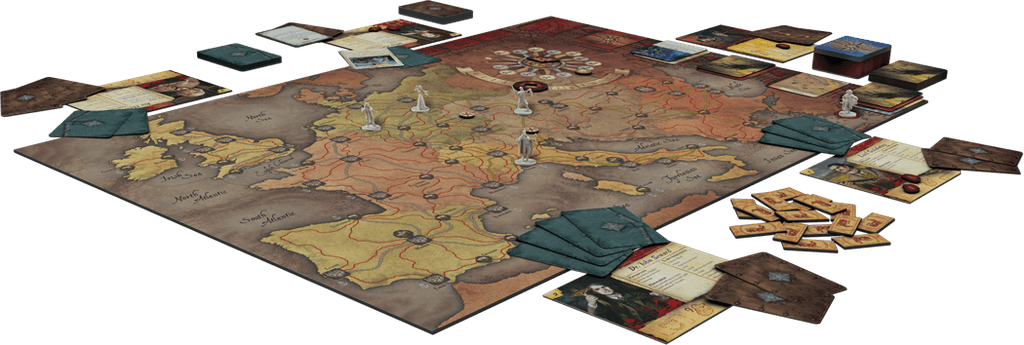
Replayability and Session Length in Dracula
So, you want to know if Dracula is a game worth pulling off the shelf more than once. Great question. I’ve played Dracula with friends who love bluffing just as much as garlic bread, and the replayability really surprised me. No two games felt the same, mostly because of how much Dracula (the sneaky one, not the game!) can throw surprises at the hunters. Every new player brings a twist to the strategy. It’s not just different moves; it’s different personalities trying to outwit or catch the vampire every single time.
The session length, though, can feel as eternal as Dracula himself. Our first play took nearly two and a half hours, thanks to some long debates and even longer ‘secret moves’. With a group who knows the rules and doesn’t pause for dramatic effect every five seconds, you can wrap up in around ninety minutes. Still, this isn’t the game to bring out when someone needs to catch the last bus home. Plan for a meaty session, full of plotting and laughter… and probably a few accusations of cheating.
Replay-wise, Dracula has good legs. If you swap roles around, you’ll never get bored. But I will say, if your group hates patience or gets cranky when cornered by bad luck, you might want to pick something breezier. My own group wanted to play again right after the first round, so clearly, it casts a strong spell!
Do I recommend Dracula? If your group loves theme-heavy games and isn’t scared of a long, tense hunt—absolutely. But if you’re easily bored or hate being hunted, maybe just stick to garlic bread.
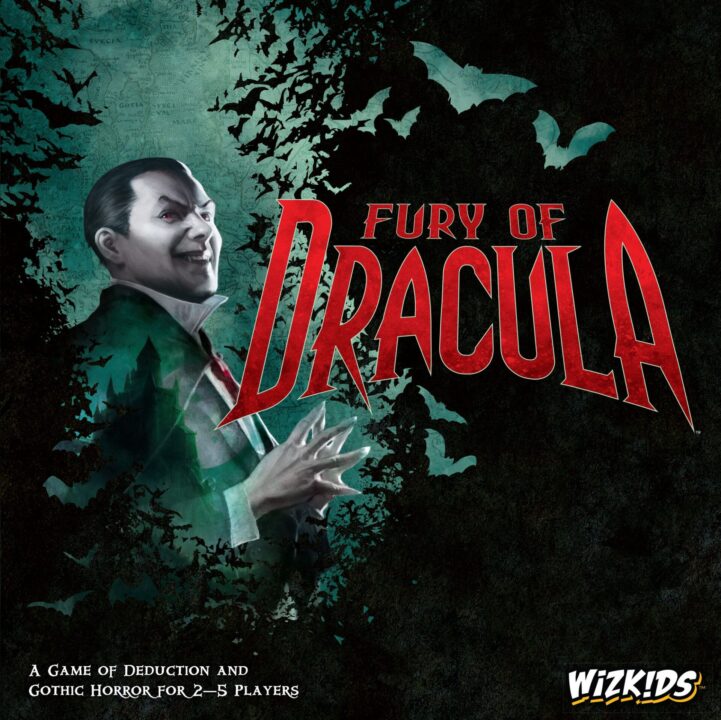
Conclusion
So, that’s my journey with Dracula, fangs and all! It’s a game packed with tension, atmosphere, and a few too many heart attacks for my liking, but I love it anyway. Sure, the sessions take longer than my last attempt at baking sourdough and some luck can spoil your evening, but the fun of outsmarting your friends makes up for it. If you like sneaky moves and heated table talk, Dracula is a strong choice. Just bring snacks and maybe a garlic necklace, you never know! This wraps up my review—now go hunt some vampires, or become one yourself.

